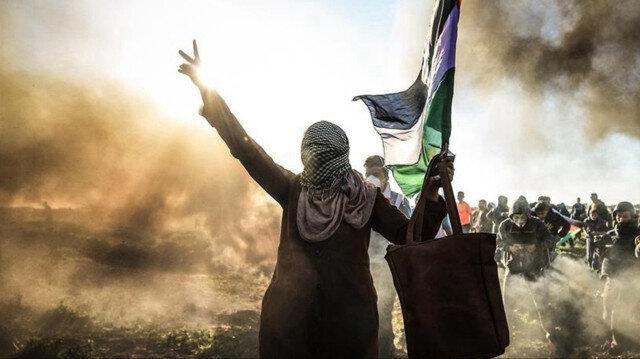
The Unbearable Lightness of Obtaining Weapons in Israel and the West Bank
After an almost month-long pursuit, Israeli security forces on Thursday killed members of a Hamas squad suspected of murdering Lucy Dee and her daughters, Maia and Rina, in the Jordan Valley during the week of Passover.
A force of Yamam (police special ops) and the Shin Bet, with the aid of the Israel Defense Forces, located the apartment in which the two Palestinians suspected of the murder were hiding, in the Nablus casbah. The two were killed in an exchange of fire, along with an accomplice. No one was hurt on the Israeli side.
The hunt took longer than usual this time, even though the identity of the suspects had apparently been known for some time. Like many of the recent operations in the northern West Bank, this one also took place during the daylight hours. That entails the danger of a larger entanglement, because of the many civilians in the streets, but the decisive consideration was probably the desire to “close a circle” quickly – namely, to take advantage of pinpoint intelligence and act immediately to arrest or kill the suspects.
Unlike in other recent cases, the gunmen were members of the military wing of a terrorist organization and not part of a local squad lacking ideological affiliation. The great majority of the perpetrators of terrorist attacks of late have been young people who acted on their own or with a few friends from the neighborhood and the refugee camp. The two exceptions are larger local groups (Lion’s Den in Nablus, Sons of the Camp in the Jenin refugee camp). In a small number of cases, more structured squads have also been uncovered, operating on behalf of Hamas or Islamic Jihad.
What all these acts of terror have in common – along with the crime-based murders in Israel’s Arab society – is the high availability of weapons. The intolerable ease with which automatic weapons can be obtained, in the West Bank and within the Green Line alike, increases the volume of the incidents and the number of casualties.
Iran, for its part, is no longer bothering to hide its contribution to the arms smuggling efforts. Three weeks ago, on April 18, the commander of that country’s Revolutionary Guards, Gen. Hossein Salami, delivered a speech in Tehran in which he declared with pride that “unseen hands armed the West Bank. You see modern automatic rifles in the hands of the Palestinians.” In the speech, which was translated (into Hebrew) by MEMRI, the Jerusalem-based Middle East Media Research Institute, Salami maintained that the equations of deterrence between Iran and Israel “have become unequal. The enemy knows that he will not be able to withstand us, whereas we know that we will be able.”
The readily available weapons on the Palestinian side will continue to hamper all the IDF’s arrest operations in the northern West Bank. From the viewpoint of the Palestinians there, an unsettled account also remains in the wake of the death this week in an Israeli prison of Khader Adnan, who was on a hunger strike. And even though a cease-fire was attained in the Gaza Strip, Israeli’s insistence on holding onto his body in the meantime could trigger additional violent responses.
Source: msn





